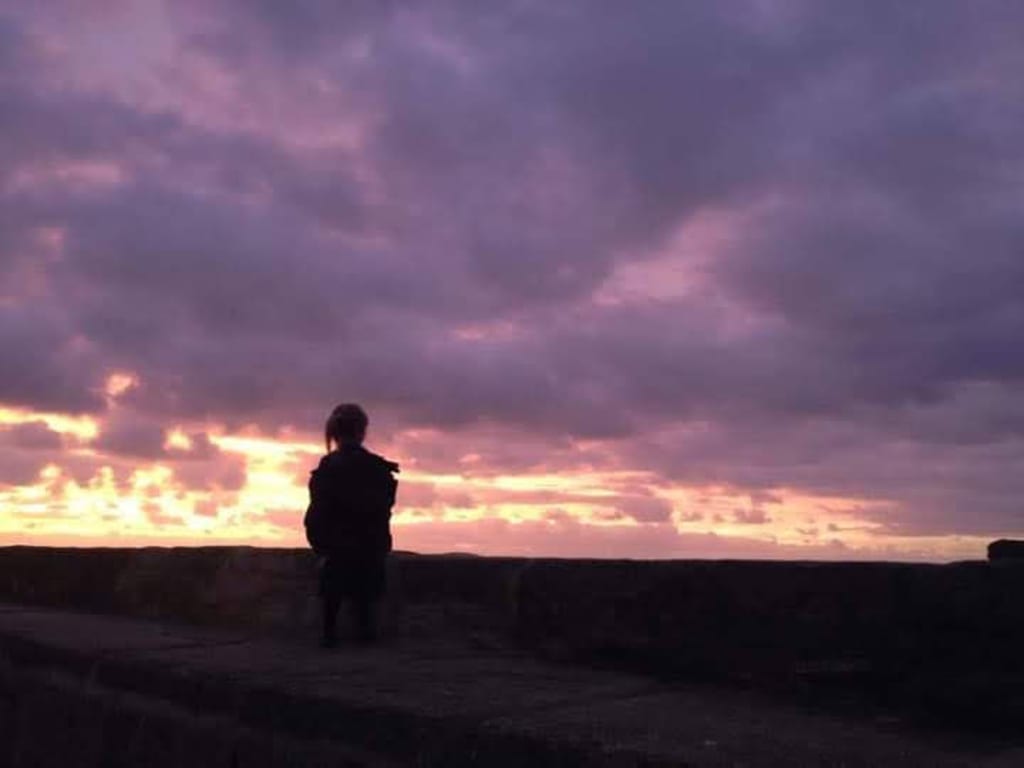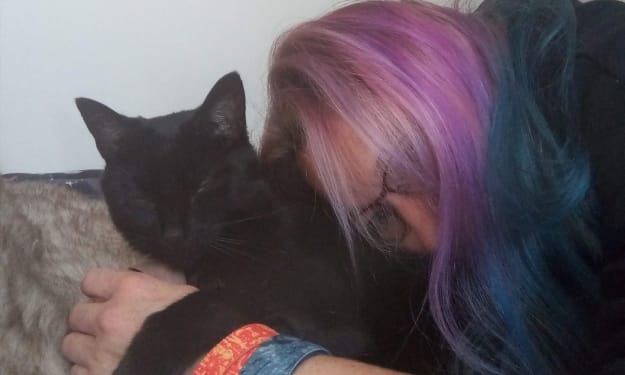For the Love of Roleplay
A journey through an Autistic Life

Dramatic.
I have been called that many a time over the last thirty-six years. I am one of many late diagnosed autistic adults who identify strongly with Pathological Demand Avoidance. PDA is growing in recognition of late and is characterised by a set of avoidant behaviours that prevent us engaging in everyday situations. This can have a detrimental impact on education, employment, and mental health unless the PDAer is supported in a way which meets their needs.
This avoidance often occurs due to severe anxiety caused by a denial of autistic adults' self-autonomy. Daily life can be an endless battle of mental health issues, life experiences and communication difficulties that impede our quality of life. We cannot rather than will not, and as this objection is often misunderstood, cycles of misunderstanding can also have an injurious effect on our wellbeing. Demands are internal as well as external and can impact upon eating and sleeping as much as socialisation and other areas.
The more demands placed upon the PDAer, the harder it can be to engage or function, leading to extreme burnout and being unable to meet basic needs. It is a common reason so many children with PDA end up being unable to attend or excluded from school, experiencing social care professionals and health services that supposedly offer detailed guidance on how to ‘fix’ the problem but often leaves a family in deeper crisis as the strategies advised go against that need for autonomy and independence.
One strategy I use to try to get around avoidance, when I needed to, is role-play.
The Expression of Role Play in PDA
I am a crystal with a thousand facets. Role-play as a way of engaging has been something I have done unconsciously through my whole life. Demands, particularly external ones, cause me great distress, even if I want to participate or do the action, every suggestion always has a knee-jerk ‘NO!’ response.
As an adult with more in-depth knowledge of my neurotype, I can see my facets, my faces, but even as a child I still channeled my ability to engage through my fantasy worlds. This engagement through role-play is not masking - a covering up of autistic behaviour - but using a character as a vehicle to traverse the situation.
The Horse Years
My childhood friends still remember me as a horse. Oh, I lived for horses. They consumed my every waking minute.
In my garden at home I had a full stable of prancing Lipizzaners, high-stepping Friesians, dish faced Arabs with eyes a hundred years old. My imagination knew no bounds as my garden was regularly transformed into corrals and yards by me using my sisters’ toys (much to my mother’s annoyance) for jumps and fences. However, my role-play shifted at school to me becoming the horse, born out of a desire and wish for freedom, after all, horses cannot hold a pen.
Horses are also herd animals, and my eight-year-old self could not understand why acting like a horse did not get me my herd, those friends I craved. This made me stand out even more at school, seen as quirky, accepted by some but othered by most, bullied by a few who did not appreciate my unique views and attempts at connecting.
Developing self-led strategies
These failed attempts drove my curiosity into why humans acted like they did. Continued keen observations drove my next roles as I tried to connect with others but always in my head that secret fantasy land existed that I could retreat to at any time.
After the exhausting social interactions that go hand in hand with teenage angst, returning to my books and my other life where I walked in Tamora Pierce’s Tortall as a mage with a magical Gift, I flew the skies of Anne McCaffrey’s Pern on my own queen dragon- faithful friend and defender, I studied under Esme Weatherwax in the Ramtops of Pratchett’s Discworld. As a younger child I loved tales about the fairies, the Sidhe, the fair folk.
I would use parts of characters, unconsciously apply my observations of human behaviour, and try out different faces in different situations. Like a snake, I would shed those that didn’t work, creating avatars of myself, painstakingly constructed, an advanced scripting that goes beyond thinking of what to say, but world building of the self. Always present at the core but using that internal dramatisation to perform the dance of life via a third party.
An outfit for every occasion
Kyra the parent, she is direct, she fights for her children’s needs. She looks capable, despite her facial expressions. Bigger than her 5ft 3in height, she sounds confident, her hair always looks good (this last part is a definite imagining as my curls look more like Bellatrix LeStrange!). I project this character, I am this character, because if I am not, I’ll start to crack, to lose my voice, to fall under the paperwork tsunami of raising two children who are not currently at mainstream school and who need extra supports.
At the supermarket I am Kyra on an adventure, often imagining the bus is my dragon, Aldi is a Westeros market, what rare delights are offered by the middle aisle this week? Kyra the advocate, not writing an article but a personal letter to the reader. Even walking around my village, I am half away in my head, following a story that no one else can see, channeling my alert mode into side story where nothing can touch me.
‘People with Autism lack imagination’
The myth that autistic people lack imagination does many of us a disservice. There are many creative autistic folks of all ages who offer wondrous works of art, fantastically detailed fictional worlds, songs that raise the goose pimples, actors whose portrayals bring us to tears. We may communicate differently but this does not mean we lack a rich internal life or sense of self.
The PDA brain is a complex place. A place of contradictions, where sometimes you are fighting yourself as much as fighting external demands. If we find solace in the wonderful places we craft for ourselves, respect that.
If your child can only go to school today by being a dinosaur, hey, that is okay. If you can only go to the hospital because you are exploring a newly discovered medical facility in space, then brilliant! You have found your way through, in a way that works for you, respecting that inner self whilst engaging in what you need or want to do to improve your quality of life.
An authentic autistic life is a good life
At heart I am Kyra the cat, always finding the animals the most comforting of my selves. You will quite often find me crouched on the floor with one of my three cats, engaging with them as a fellow feline, or even surprise me unexpectedly and you will receive a hiss. Who better to emulate than the Cat who walked by himself, where all places are alike to him? The curiosity, the charm, the hidden wanting to belong. As an autistic person with a late formal diagnosis, is it any wonder I found a kindred soul in that character both as a child and as an adult? Stories can shape lives; I shaped my stories around mine.
To find out more about PDA in detail, The PDA Society offers many resources of education, guidance, and support for PDAers, with or without an Autism diagnosis and their personal care givers. Check out more articles from this author at https://ko-fi.com/prismcat.
This article was originally published on Neurodiversity Matters. The author holds all rights.
About the Creator
Kyra Chambers
Autistic (PDA) & Neurodivergent writer.
Vocal Plus Fiction Awards Finalist.
Find my full article list at The Chambers Chronicles
Tips/Subs appreciated but never expected.
***
Please check out my Linktree!
Reader insights
Outstanding
Excellent work. Looking forward to reading more!
Top insights
Easy to read and follow
Well-structured & engaging content
Heartfelt and relatable
The story invoked strong personal emotions






Comments
There are no comments for this story
Be the first to respond and start the conversation.